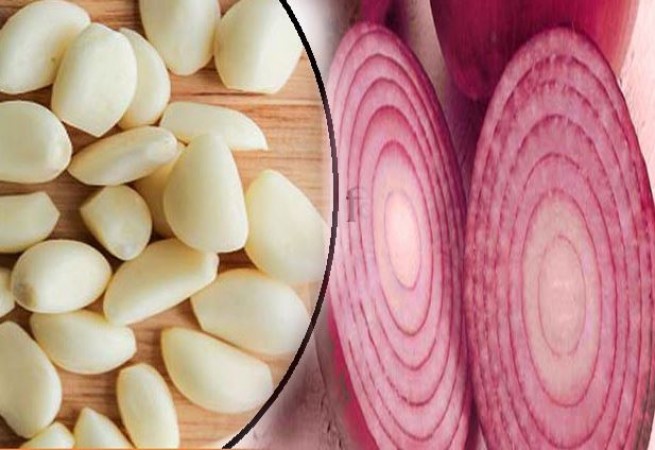
Sawan, also known as Shravan, is a sacred month in the Hindu lunar calendar, dedicated to Lord Shiva. During this period, many individuals choose to abstain from consuming onion and garlic as part of their religious observance. The practice of avoiding these ingredients carries significant cultural and spiritual significance. we will explore the reasons behind the avoidance of onion and garlic in Sawan.
The Symbolism of Onion and Garlic
Onion and garlic possess distinctive characteristics that have symbolic significance in Hindu traditions. These ingredients are known for their pungent smell and strong taste, which are believed to stimulate desires and passions. Sawan, being a month of intense devotion and introspection, requires individuals to maintain a state of purity and control over their senses. Hence, the avoidance of onion and garlic is seen as a way to subdue worldly cravings and focus on spiritual pursuits.
Ayurvedic Perspective
Ayurveda, the ancient Indian system of medicine, views onion and garlic from an energetic perspective. According to Ayurvedic principles, these ingredients are considered rajasic and tamasic. Rajasic foods are believed to increase restlessness and passion, while tamasic foods are associated with darkness and inertia. During Sawan, when individuals strive to attain mental clarity and tranquility, avoiding rajasic and tamasic foods becomes significant.
Spiritual Beliefs and Practices
In addition to the Ayurvedic viewpoint, spiritual beliefs and practices also contribute to the avoidance of onion and garlic in Sawan. Many devotees believe that these ingredients have negative energies and can disrupt spiritual practices. By abstaining from consuming onion and garlic, individuals aim to create a purer environment within themselves, facilitating deeper meditation and connection with the divine.
Cultural Traditions
The avoidance of onion and garlic in Sawan is deeply rooted in cultural traditions. Different regions across India have their own customs and rituals associated with this practice. Families come together to prepare special vegetarian meals, incorporating a wide array of spices, herbs, and alternative ingredients. This culinary creativity showcases the rich diversity of Indian cuisine and highlights the importance of adapting to religious and cultural practices.
Can I consume onion and garlic in any form during Sawan?
No, the traditional practice of avoiding onion and garlic suggests complete abstinence from these ingredients during this holy month.
Are there any health benefits associated with avoiding onion and garlic in Sawan?
While there may not be direct health benefits, the dietary restrictions during Sawan encourage individuals to explore alternative ingredients and spices, leading to a diverse and balanced diet.
Is the avoidance of onion and garlic mandatory for everyone during Sawan?
The decision to abstain from onion and garlic during Sawan is a personal choice based on cultural, religious, and individual beliefs. It is not mandatory for everyone.
Can I substitute onion and garlic with other ingredients in my regular cooking during Sawan?
Yes, there are various substitutes available, such as asafoetida, ginger, and cumin seeds, that can be used to impart flavor to your dishes.
How long does the dietary restriction of avoiding onion and garlic in Sawan last?
The dietary restriction generally lasts for the entire month of Sawan, which varies according to the lunar calendar.
Who is Amogh Lila Das, a monk turned engineer, and why has Iskcon forbidden him?
Indian Rivers: India's only male river, which is also revered by people of other religions
The Significance of the Swastika: A Sacred Symbol in Hinduism